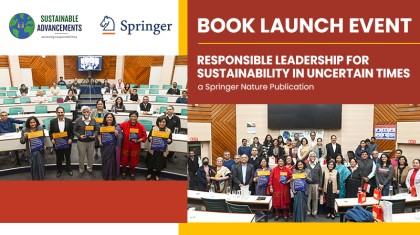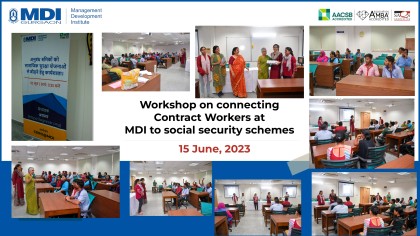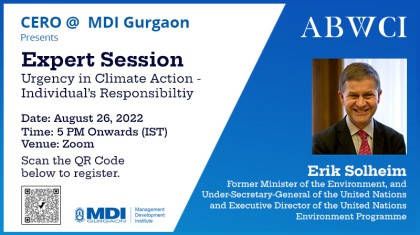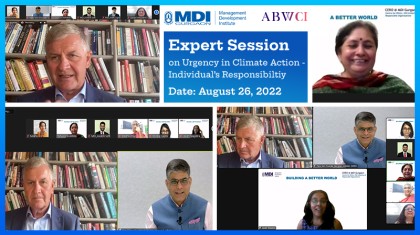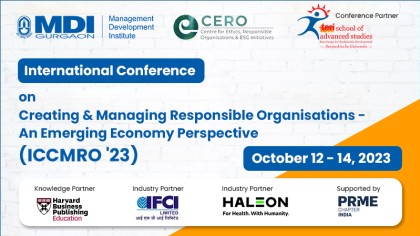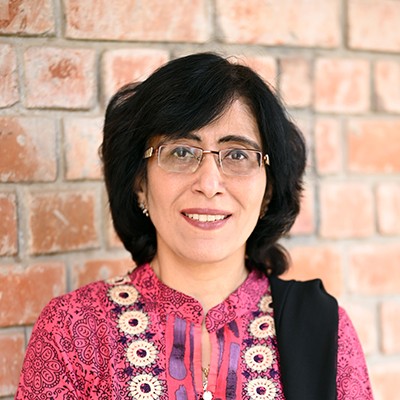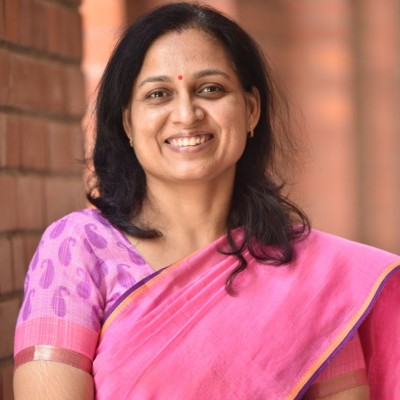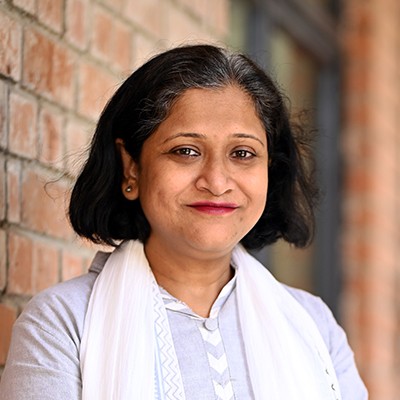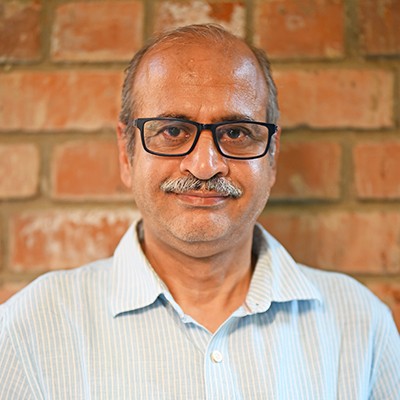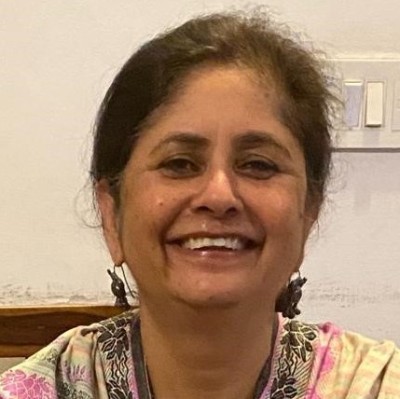Centre for Ethics, Responsible Organisations & ESG Initiatives
The Centre of Excellence for Ethics, Responsible Organisations & ESG Initiatives, CERO @ MDI Gurgaon, has been formed by a group of self-motivated professionals. The idea is to contribute to the foundations of social and economic changes for a sustainable and just world. This will lead to empowerment of the underprivileged and marginalised.
The Centre aims to serve as a platform for education, research and engagement. This is in context of the challenges of ethics and social and environmental responsibility that confront current and future business leaders and policy makers. Our mission is to prepare individuals and organisations with the knowledge and techniques needed to create ethical, responsible and sustainable organisations.
The Centre's activities would revolve around sensitisation of business students and professionals on the pertinent environmental and social issues. Socially responsible behaviour will be inculcated in citizens and corporate citizens. This can be achieved by leveraging the alumni network, and other professional networks to conduct workshops and conferences. We also propose to build domain knowledge through academic and corporate partnerships. We will leverage our consulting and corporate education skills to offer certificate courses in areas of interest.
The Sustainable Development Goals (SDGs) adopted by all United Nations member states in 2015 provide a blueprint for peace and prosperity of people and planet, now and into the future. Countries are called to action on each of these goals, to reduce poverty, inequality and other deprivations while improving health, education and economic growth, keeping in mind the need to preserve the planet’s natural heritage. For the last two years, India has been reporting on SDG achievements across all the states and union territories.
High-profile corporate scandals such as Enron and WorldCom, drastic societal changes, new market conditions, the occurrence of various risks such as climate, demographic, social, financial and ecological crises, or the disappearance of the welfare state vision have driven executives to consider the discourse on ethics and responsible organisations for sustainability. A case is being made that the long-term positive impact of investing in responsible businesses translates not only into image benefits for the company, but also financial ones. This discourse on responsible organisations becomes critical in the face of current VUCA world and Covid-19 pandemic. Questions and concerns of social inequity and justice raised at the World Economic Forum provide an urgency for the external stakeholders- governing bodies, advocacy groups and academic institutions to carry out research and design practices to develop this field of management discipline. Subsequently, two recent landmark incidents have increased the urgency for the business community, and the Indian business community in particular, to focus on Responsible Business and ESG (Environment, Social and Governance) disclosures:
- SEBI’s announcement iii, in May 2021, that the top 1000 listed companies need to mandatorily report on Business Responsibility and Sustainability, starting FY 2022-23. They are encouraged to voluntarily report from FY 2021-23 and the circular calls for early adoption of ESG disclosure, as a good business practice. The Business Responsibility and Sustainability Reporting Format prescribed, aims to bring in ESG reporting at par with financial reporting.
- IPCC (Intergovernmental Panel on Climate Change) 6th Assessment Report 2021iv, presents concrete evidence of climate change being a direct result of anthropogenic activities, largest of which is through businesses and industry. It calls for actions to be taken by the business community worldwide, to take accountability for their actions and reduce their carbon footprint, to maintain the earth’s temperature increase to 1.5 degree Celsius by 2040.
In the global business community, Socially Responsible Investment is receiving increased attention. The measurement criteria of assessing the performance of socially responsible business have become pertinent to attract investments for business. In this context, Environmental, Social and Governance (ESG) criteria (Chen, 2019) v provide a set of standards for a company’s operations that socially conscious investors use to screen potential investments. Environmental criteria consider how a company performs as a steward of nature. Social criteria examine how it manages relationships with employees, suppliers, customers, and the communities where it operates. Governance deals with a company’s leadership, executive pay, audits, internal controls, and shareholder rights. Various ESG rating agencies assign ESG scores to the companies on the basis of weights assigned to the indicators of these three pillars.
India followed a mandated CSR since 2013 and is now moving towards a more responsible business framework of ESG. By 2023, the SEBI mandate makes organisations to report their ESG parameters to promote socially responsible investments. Social sector dimensions need special attention and this requires attention beyond the responsible business from development perspective. In this context, following a Stakeholder approach (Freeman, 1990) vi, the role of NGOs, civil societies, policy makers and regulators need to be streamlined towards this direction. This has a huge potential for further deliverables in terms of training, consulting and future avenues for research.
References
- Katarzyna Szczepanska- Woszczyna, Zdzislawa Dacko-Pikiewicz, Marcin Lis, “Responsible leadership: a real need or transient curiosity”, Procedia- Social and Behavioral Sciences, 2015
- “SEBI issues circular on “Business Responsibility and Sustainability Reporting by listed entities”, Securities and Exchange Board of India, 2021 https://www.sebi.gov.in/media/press-releases/may-2021/sebi-issues-circular-on-business-responsibility-and-sustainability-reporting-by-listed-entities-_50097.html
- “Climate Change 2021: the Physical Science Basis”, United Nations (UN) Intergovernmental Panel on Climate Change (IPCC), August 2021 https://www.ipcc.ch/report/ar6/wg1/
- Ellen Pei-yi Yu, Bac Van Luu, Catherine Huirong Chen, “Greenwashing in environmental, social and governance disclosures”, Research in International Business and Finance, 2019
- R.Edward Freeman, William M.Evan, “Corporate governance: A stakeholder interpretation”, Journal of Behavioural Economics, 1990
The Objectives of the CERO@MDI Gurgaon would be;
- To act as a think tank and encourage dialogues on issues related to ethics and responsible organisations across different stakeholder including corporate, government bodies, voluntary sector and society at large.
- To facilitate both academic as well as practical problem solving orientation to the field of business and society
- To become the nodal centre for developing / sensitizing organisations to ESG guidelines through workshops and short duration training and link with broader spectrum of SDGs for global efforts towards a sustainable world
- To address responsibility of employers towards employees in the formal and informal sectors
- Inclusion and spirituality in organisations for enhanced resilience and harmony at work
- Organizing workshops / seminars for different stakeholders on topics related to organisational ethics and responsible business. The centre aims to organize workshops and seminars by inviting eminent speakers from different areas.
- Starting certification programmes in collaboration with industry on ESG framework
- Research papers, books, monographs, Working Papers, etc.
- Undertaking research and consulting projects on the related themes.
- Corporate sector
- Entrepreneurs across sectors
- NGOs and Non-profit organisations
- Civil Society organisations
- Community at large
- Government and policy makers
- Regulators
- Associations and advocacy groups
- Mr. Anubhav Gupta, Partner, Human Capital Consulting, Deloitte Touche Tohmatsu India LLP
- Prof. KR Shyam Sundar, XLRI, India
- Prof. Elizabeth Chacko, George Washington University, US
- Mr. Parul Soni, Think Through Consulting, India
- Prof. Sharda Nandram, Nyenrode Business University, Breukelen, Netherlands
- Prof. Tanusree Jain, Trinity Centre for Social Innovation, Dublin
- Mr. Vivek Mehra, MD & CEO Sage India
- Mr. Vinod Sharma, MD Deki Electronics


